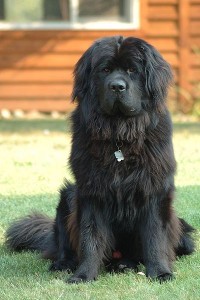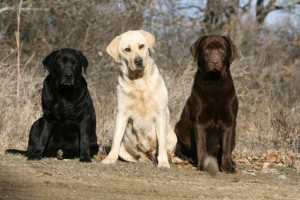What to feed your dog *Newfoundland*
To continue with our “what to feed your dog series”, I thought it would be cool to check out the dog that developed right besides the Lab…. the Newfoundland. Yes this dog breed was named right after the province of Newfoundland and while the Lab is the ideal dog for authority and helpfulness, the Newfoundland dog is known as the companion for coastal fisherman. These dogs are known to be big, strong, and loyal. Newfoundland dogs excel at water rescue/lifesaving due to their muscular build, thick double coat, innate swimming abilities and the most unique feature… webbed feet. According to the resources I have gathered, it looks like the Newfoundland dog like the Lab requires a high requirement for the fat soluble vitamins. However, you need to get the fats and vitamins from a proper source.
The nutrients in the Newfoundland’s native environment consisted primarily of cold water white fish such as cod, halibut and haring. Any exposure to meat would have been from caribou *which has amino acid similar to horse meat* and bear meat *with has amino acid similar to pork meat. For a Newfoundland I would recommend you look for food blends containing fish, pork, poultry and lamb. Make sure the food has high fat content. However, stay away from foods composed of beef, soy and any foods having protein content over 30% or a high fiber content from pats, beets of wood pulp.
What to feed your dog *Labrador Retriever*
This time for our “What to Feed Your Dog” series, I thought I do the Labrador Retriever. I’ve known many people throughout my life who have had a dog of this breed and it is one of the most popular ones in the USA, Canada and England. The Labrador Retriever *also known as a Lab* originated on Newfoundland island, off the coast of Labrador in the North East point of Canada. The breed was further developed in England and is famous for being a gun dog. They are renowned for their involvement in law enforcement, their appearance in wars, but above all else, they are the most trusted guide dogs for the blind and helping dogs to the disabled. Labradors are athletic and love to swim, play catch, are good with young children, elderly, and for protection. The Labrador is one of the very few breeds that is known to produce oil through the pores of the skin. It can develop a very dry and brittle coat in a very short period of time when the entire, Linoleic acid group is not present in its daily diet. The Linoleic acid group consists of Oleic, Linolenic and Linoleic. You can get these fatty acids through fish oil, poultry and cold pressed wheat germ oil.
In Newfoundland the primary food sources were caribou, fish and whale fats. In England the food sources were poultry, fish, wheat and dairy products. With the combined effect of the foods from the two areas, we have a breed that requires a diet low in carbohydrates but high in fats. Fats are important for the Lab but while it thrives on poultry, fish and vegetable fats… it has a hard time assimilating beef fat.
From what I have found, I recommend commercial foods that contain fish, poultry, lamb, and green vegetables. However, I would say to avoid beef, beets, corn and soy.






